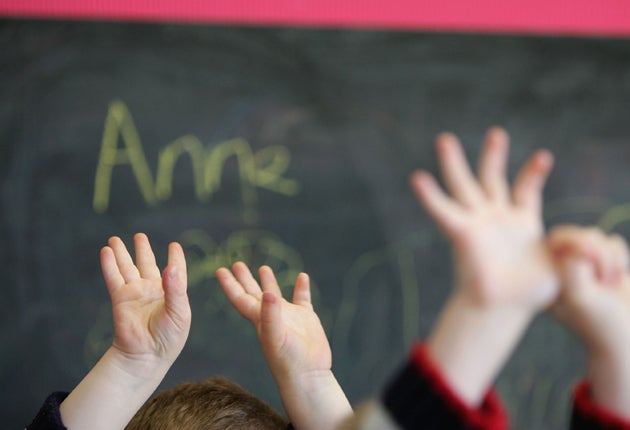Prejudiced teachers too quick to brand children 'naughty'
Youngsters whose parents are seen as neglectful or interfering are often unfairly tagged as a problem

Children are being labelled "naughty" as a result of their teachers' views of their home backgrounds, says a major study published today. It adds that once children are tagged as troublesome it is difficult to shake off that reputation.
The study, commissioned by the Economic and Social Research Council, looked at the behaviour of children aged four and five in reception classes. It found that teachers were worried about youngsters kicking and punching each other in class, as well as repeatedly calling out or not sitting properly during lessons. Youngsters who behaved in this way, however, were not always singled out as troublemakers.
"Resistant or aggressive behaviour did not however inevitably result in a poor reputation," says the report. "This is most likely to happen when a child's immediate conduct is regarded as a sign of a wider problem. Children's reputations may be linked, for example, to teachers' views of their home background.
"Some parents risk being judged as neglectful, indulgent, anxious, uncooperative or interfering and therefore as failing to adequately prepare their son or daughter for school. This in turn feeds into teachers' perceptions of that child's behaviour as a 'problem'."
The picture built up of a pupil can also be based on the views of classroom assistants – who are more likely to live within the area served by the school.
Teachers also find it easier to base their assessment of the pupils on their parents now that schools are encouraging more home-school links. They get to see the parents more as a result of this.
The report continues: "Once a child's reputation has begun to circulate in the staffroom, dining hall and amongst other parents, it may be very difficult for their behaviour not to be interpreted as a sign of such imputed character traits. Children who have acquired a strong reputation may therefore find it harder to be recognised as good."
Professor Maggie MacLure of Manchester Metropolitan University, who conducted the research, said: "One of the main functions of the reception year is to form a crowd of individual children into a class and tolerance of diversity is very low.
"Classroom discipline is a very public activity and children who do not conform to the rules will be publicly marked as different."
Co-author Professor Liz Jones, also from Manchester Metropolitan University, added: "Some cherished principles of early years education may have some unintended consequences. The principle of strong home-school links, for instance, may contribute to certain families being identified as sources of their children's problematic behaviour."
The research was conducted in the reception classes of four infant and primary schools in the Greater Manchester area. The four included a faith school with a mainly white intake and a high proportion of pupils on free school meals, an inner-city school with a large intake of asylum-seekers' and refugees' children, a school in a suburb favoured by the comfortably off, and a fourth in a socially deprived area.
The findings follows an earlier poll which suggested one in three teachers believed they could spot troublemakers by their first names. Youngsters called Callum, Connor, Jack, Courtney and Chardonnay were seen as the most likely to disrupt classes.
Subscribe to Independent Premium to bookmark this article
Want to bookmark your favourite articles and stories to read or reference later? Start your Independent Premium subscription today.

Join our commenting forum
Join thought-provoking conversations, follow other Independent readers and see their replies